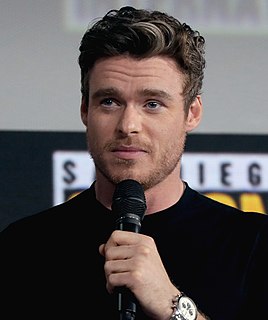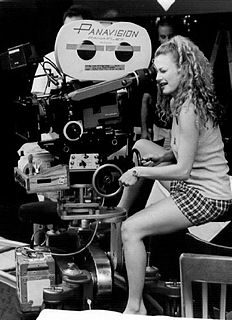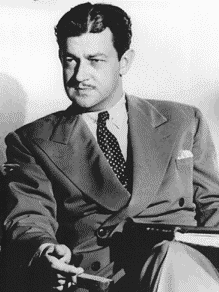A Quote by Jess Walter
You take something from your past that you're somewhat ashamed about and you write about it from another character's point of view.
Related Quotes
Everybody you work with sees what you're doing from a different point of view, a very specific point of view. So, if someone is lighting, they're seeing it from that point of view. A production designer is seeing it from the placement of furniture that tells you about the character. Everything that goes into the room should tell you about the person who lives in that room.
When you are writing, you have to love all your characters. If you're writing something from a minor character's point of view, you really need to stop and say the purpose of this character isn't to be somebody's sidekick or to come in and put the horse in the stable. The purpose of this character is you're getting a little window into that character's life and that character's day. You have to write them as if they're not a minor character, because they do have their own things going on.
It's joyful in that there's another point of view on all things, you know, not just mine. That's why I like to write and collaborate with people. There's another point of view, and when those two things come together, and people work at it really hard, they get something that is the whole is more than the sum of - is that how you say that?
I wrote lots of scripts that never got made and they were terrible. I thought they were good at the time. You can't write two scripts and expect your career to take off. Keep writing. Be you. Be original. A lot of people go for a genre, which is fine if you can do that really well, but we all have such layered histories. We all come from a unique background. Write about your past, write about you. Or make stuff up, but make it about something that really matters.
One of the most beautiful things about 'Game of Thrones' is it's told from so many different points of view, and these characters can convince you that what they're doing is right. But they're only showing you a bit of the picture, and when you see it from another character's point of view you may switch allegiances.
The Divine Comedy is a political poem and when you say poetry is not about - he's always quoted out of context, that "poetry makes nothing happen," that doesn't mean you shrug your shoulders and don't try to make anything happen. And Dante felt that poetry was engaged, there was a point of view; it's not my point of view, it's orthodox medieval Christianity, and I have my troubles with that. He didn't feel that you could just rule out so important a section of life - we care about these things, and it's out of caring about them that we write poetry.
The first thing that happens is the cleansing of the former character. I don't think a lot of actors talk about it, but there is usually a process where you essentially purge yourself of the character played prior to the movie. Then you want to think about what the character represents, and you write down all of the elements about this character and then take the time to find some synchronicity and start breathing the character.
I write and speak about personal and spiritual growth. One week I write about illness and another week I speak about relationships and another week I write about work and money and another week I speak to people with obesity issues. I write about whatever wounds seem to cry out for more enlightened solutions, and the love that heals them all.
[T]he more clamour we make about 'the women's point of view', the more we rub it into people that the women's point of view is different, and frankly I do not think it is -- at least in my job. The line I always want to take is, that there is the 'point of view' of the reasonably enlightened human brain, and that this is the aspect of the matter which I am best fitted to uphold.
We are seeing, then, that our experience is altogether momentary. From one point of view, each moment is so elusive and so brief that we cannot even think about it before it has gone. From another point of view, this moment is always here, since we know no other moment than the present moment. It is always dying, always becoming past more rapidly than imagination can conceive. Yet at the same time it is always being born, always new, emerging just as rapidly from that complete unknown we call the future. Thinking about it almost makes you breathless.


































